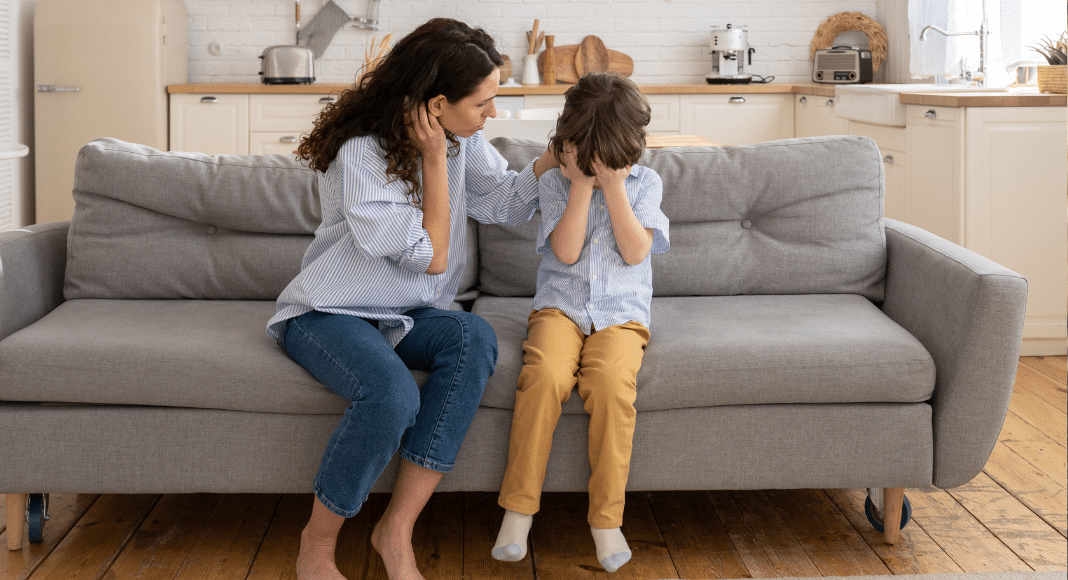 Last month my daughter came home from preschool telling me about a little boy named Charlie* who ate all the classroom snacks, and so there was no snack for the rest of the class. I chuckled a little as I envisioned a little 3-year-old eating that many grapes and crackers. Through my smirk, I said, “Charlie sounds so silly.” My daughter quickly and sharply replied, “Charlie isn’t silly at all! He is bad!”. My heart sank a little bit because, as a child therapist, I know with 100% certainty that there are no bad kids. There are dysregulated children, undiagnosed neurodivergent children, children who’ve experienced trauma, and children with vulnerable nervous systems…but there are no bad children. I realized I needed to reframe this conversation about Charlie, not just for him, but for her to develop empathy and kindness for a little boy that is likely getting a lot of negative reactions.
Last month my daughter came home from preschool telling me about a little boy named Charlie* who ate all the classroom snacks, and so there was no snack for the rest of the class. I chuckled a little as I envisioned a little 3-year-old eating that many grapes and crackers. Through my smirk, I said, “Charlie sounds so silly.” My daughter quickly and sharply replied, “Charlie isn’t silly at all! He is bad!”. My heart sank a little bit because, as a child therapist, I know with 100% certainty that there are no bad kids. There are dysregulated children, undiagnosed neurodivergent children, children who’ve experienced trauma, and children with vulnerable nervous systems…but there are no bad children. I realized I needed to reframe this conversation about Charlie, not just for him, but for her to develop empathy and kindness for a little boy that is likely getting a lot of negative reactions.
In fact, I guarantee Charlie’s mom is probably in a minivan somewhere because she feels like she is failing at this parenting thing. She likely has a pit in her stomach every time the school number pops up on her phone because she knows she will hear about what Charlie did at school that day. So just as I have empathy for Charlie and his mom, I want my daughter to see Charlie as a struggling kid who still deserves kindness and respect. I think sometimes we as a society quickly label children as “brats” or “bad kids.” And if we don’t do that, we blame parents for ineffective parenting. Can a child’s misbehavior be due to permissive parenting? Sure, but I find it is often the exception, not the rule.
This month I’ve heard about Charlie pushing other kids, ripping other kids’ artwork, breaking objects in the classroom, and spitting at kids. Today, in our most recent conversation, I asked her why she thought Charlie did these things. She said she didn’t know. I told her that some kids in my office have bodies that move very fast and don’t know how to slow down. Some kids have a hard time thinking about whether something is a good or bad choice before they do it. My daughter chimed in and said, “Maybe his body has so much angry feelings.” (As a therapist, I had to contain my excitement as she came to this conclusion). I agreed with her and told her that could be true. And then she said, “I feel bad for Charlie that he has a body that feels so angry.” (Again, my heart melted).
So, don’t jump on the bandwagon when your kids come home talking about the bad kid. You can, of course, agree with them that the behavior is not ok, and indeed teach them how to stay safe or tell a teacher if there is a physical threat, but don’t agree that the child is bad. Every child deserves to be seen as good and worthy, and their classmates can be an integral part of that. You never know what is happening in a child’s home or what has happened in a child’s past. Be kind and teach kindness.
*Name of child has been changed to protect privacy.









